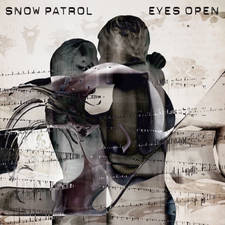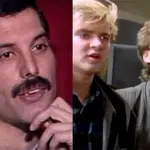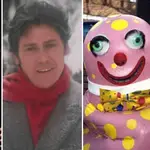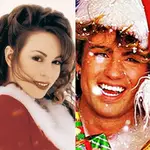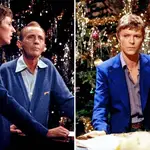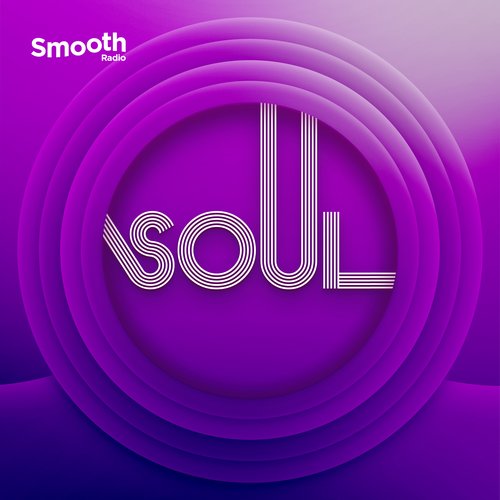The Story of... 'Have Yourself a Merry Little Christmas'
21 December 2020, 16:33 | Updated: 16 November 2022, 13:41
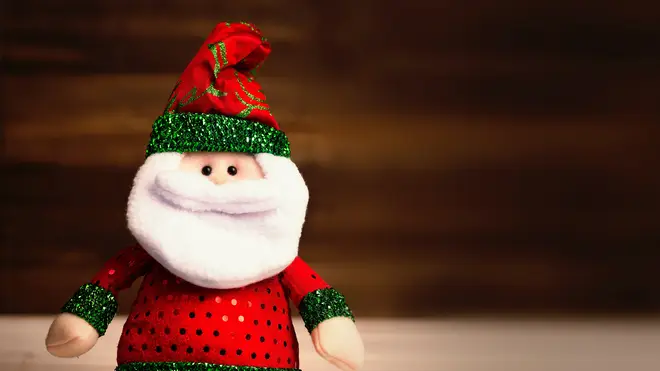
"From now on your troubles will be out of sight..."
It's one of the most well-known and performed Christmas songs of all time, and feels like it's been around forever.
But who wrote the festive classic and who performed it first? Here's all the fascinating facts you need:
-
Who wrote 'Have Yourself a Merry Little Christmas'?
The song was written by written by Hugh Martin (music) and Ralph Blane (lyrics).
It was written while Martin was holidaying in a flat in the Southside in Birmingham, Alabama, that his father Hugh Martin designed for his mother as a honeymoon cottage.
It was written for the 1944 musical movie Meet Me in St Louis, starring Judy Garland.
However, while Ralph Blane is credited with writing the music for many of Martin's songs, Martin later claimed in his autobiography that he wrote both the music and lyrics to all of the songs in the film.
He said that "all of the so-called Martin and Blane songs, (except for 'Best Foot Forward'), were written entirely by me without help from Ralph or anybody else."
Explaining why he gave Blane equal credit for the songs, he said: "I was reasonably content to let him receive equal screen credit, sheet music credit, ASCAP royalties, etc, mainly because this bizarre situation was caused by my naive and atrocious lack of business acumen."
Hugh Martin died aged 96 in 2011, while Ralph Blane passed away in 1995 at the age of 81.
-
Who sang it first?

Meet Me In St. Louis (1944) – Judy Garland – Have Yourself A Merry Little Christmas
The song first appeared in a scene in Meet Me in St Louis, which follows a family who are left distraught by the father's plans to move to New York City for a job promotion, leaving behind their home in St Louis, Missouri.
In a scene set on Christmas Eve, Judy Garland's character Esther, sings the song to cheer up her upset five-year-old sister Tootie, played by Margaret O'Brien.
-
Judy Garland helped change the song's lyrics
Some of the original lyrics by Martin were rejected before filming began.
Garland, her co-star Tom Drake and director Vincente Minnelli all criticised the song as being too depressing, and asked Martin to change the lyrics.
Martin then made several changes to make the song more upbeat. This included the lines "It may be your last / Next year we may all be living in the past", which became "Let your heart be light / Next year all our troubles will be out of sight".
Garland's version of the song soon became popular among United States troops serving in World War II.
-
...and Frank Sinatra changed it even further

Have Yourself a Merry Little Christmas
In 1957, Frank Sinatra asked Martin to change the line "Until then we'll have to muddle through somehow."
He told Martin: "The name of my album is A Jolly Christmas. Do you think you could jolly up that line for me?"
Martin's new line was "Hang a shining star upon the highest bough."
Martin also made several other changes, switching the song's focus to a celebration of current happiness, rather than looking ahead to a better future.
-
Who else has covered it?
Like many Christmas standards, the song has been performed by countless artists over the decades. These include:
- Bing Crosby
- Doris Day
- Ella Fitzgerald
Have Yourself A Merry Little Christmas
- The Pretenders
- James Taylor
- Luther Vandross
- Michael Bublé
- Sam Smith (the first ever version to chart in the Billboard Hot 100 in the US)
Sam Smith - Have Yourself A Merry Little Christmas
- Rod Stewart
- Coldplay
- Eric Clapton
- John Legend
- Whitney Houston
- Bob Dylan -
'Have Yourself a Merry Little Christmas' lyrics:
Have yourself a merry little Christmas
Let your heart be light
From now on your troubles will be out of sight
Have yourself a merry little Christmas
Make the Yuletide gay
From now on your troubles will be miles away
Here we are as in olden days
Happy golden days of yore
Faithful friends who are dear to us
Gather near to us once moreThrough the years we all will be together
If the fates allow
Hang a shining star upon the highest bough
So have yourself a merry little Christmas
Have yourself a merry little Christmas
So have yourself a merry little Christmas
